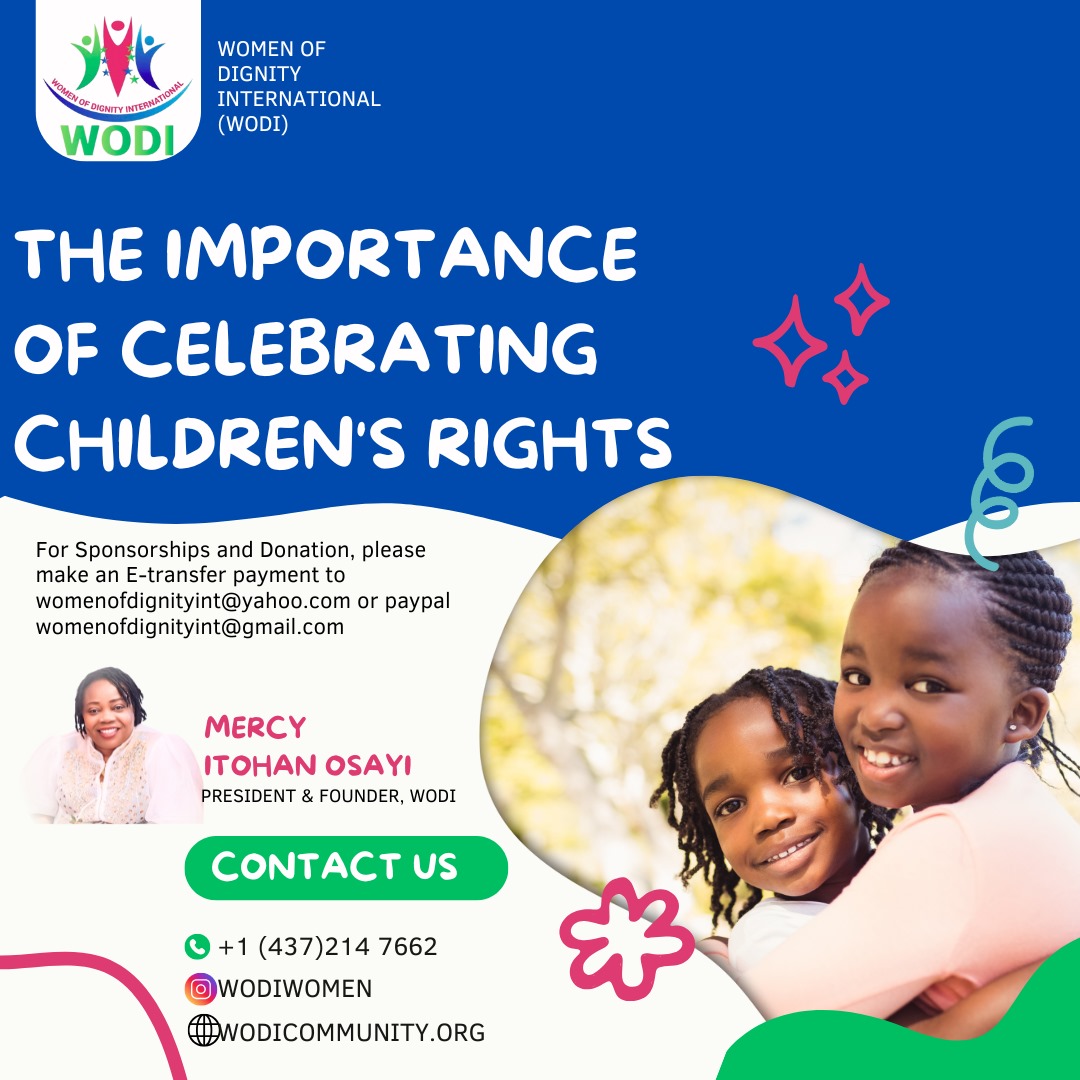The Importance of Celebrating Children's Right

The Importance of Celebrating Children's Right
Celebrating children's rights is crucial for several reasons, as it not only recognizes the inherent dignity and worth of every child but also promotes their well-being, development, and empowerment. Here are some key points highlighting the importance of celebrating children's rights:
1. Awareness and Education
Celebrating children's rights raises awareness about the specific rights that children possess, as outlined in the United Nations Convention on the Rights of the Child (UNCRC). This education helps parents, educators, and communities understand their responsibilities toward children and fosters a culture of respect and protection.
2. Empowerment
Recognizing and celebrating children's rights empowers children by giving them a voice in matters that affect their lives. When children are aware of their rights, they are more likely to advocate for themselves and others, leading to a generation that is informed and engaged in societal issues.
3. Protection from Abuse and Exploitation
Celebrating children's rights reinforces the importance of protecting children from various forms of abuse, neglect, and exploitation. By highlighting these rights, communities can work together to create safer environments for children and ensure that their rights are upheld.
4. Promotion of Equality
Children's rights celebrations emphasize equality and non-discrimination. They remind society that all children, regardless of their background, ethnicity, gender, or ability, deserve equal access to opportunities and resources. This fosters inclusivity and social justice.
5. Encouraging Participation
Celebrations often include activities that encourage children's participation in decision-making processes. This involvement helps children learn about democracy, responsibility, and civic engagement, preparing them to be active citizens in the future.
6. Supporting Mental and Emotional Well-being
Acknowledging children's rights contributes to their mental and emotional well-being. When children feel valued and respected, they are more likely to develop positive self-esteem and resilience, which are essential for their overall development.
7. Fostering Community Responsibility
Celebrating children's rights encourages communities to take collective responsibility for the welfare of their youngest members. It can galvanize local initiatives aimed at improving children's living conditions, education, health care, and recreational opportunities.
8. Inspiring Policy Change
Public celebrations of children's rights can draw attention to the need for policy changes at local, national, and international levels. Advocacy efforts often gain momentum during such events, leading to improved legislation and resources dedicated to child welfare.
Conclusion
In summary, celebrating children's rights is vital for fostering a society that values and protects its youngest members. It promotes awareness, empowers children, ensures their protection, encourages equality, supports their well-being, and inspires community action and policy change. By prioritizing children's rights, we invest in a brighter future for all.
